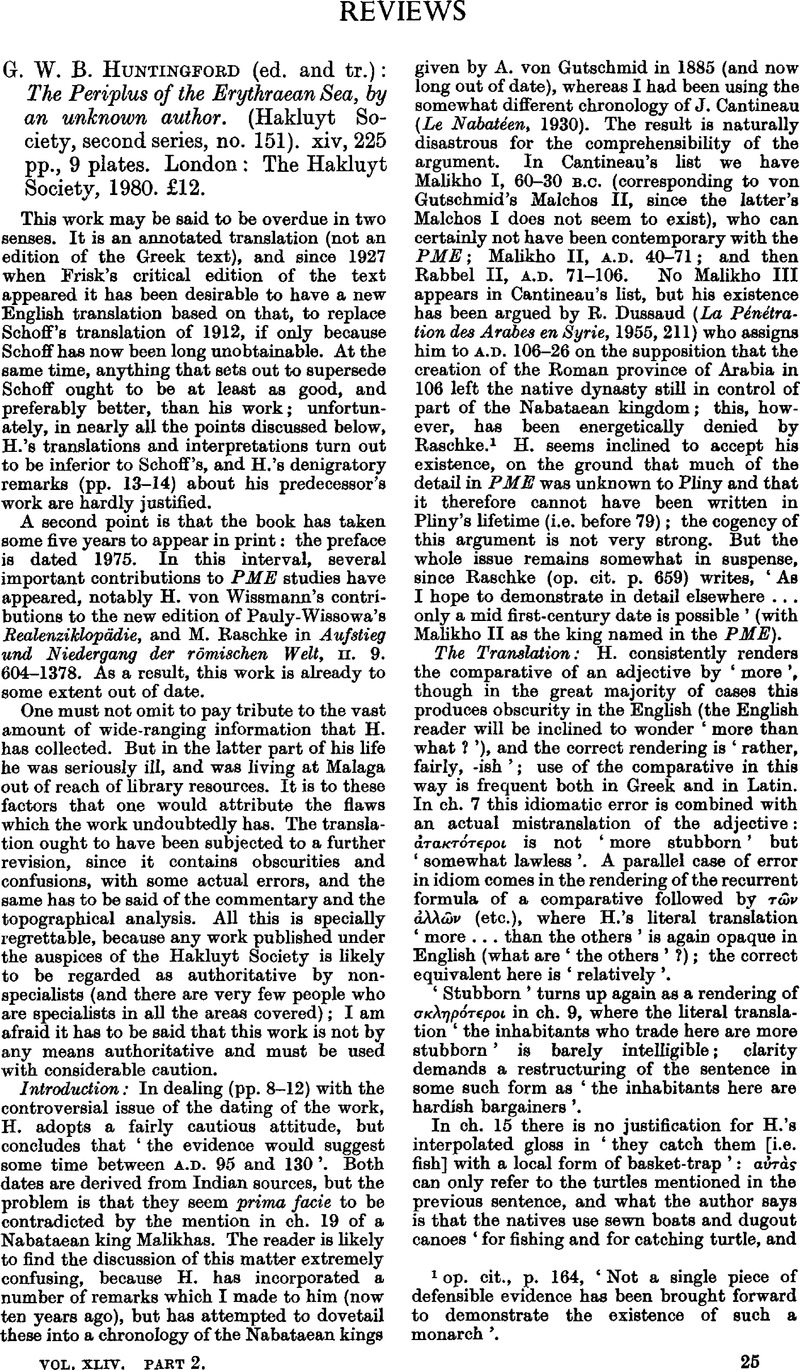Published online by Cambridge University Press: 24 December 2009

1 op. cit., p. 164, ‘Not a single piece of defensible evidence has been brought forward to demonstrate the existence of such a monarch’.
2 cf. the use of this verb in the sense ‘be current (coin)’.
3 cf. ch. 35, where Apologos is κατὰ the town of Kharax and the river Euphrates.
4 See his review of this work in The Geographical Journal of the RGS for March 1980.
5 The verb παραπλεύσαντι ‘sailing past’ (the mouth of the Gulf) is unfortunately not very clear; does it mean ‘across’ or ‘through’?
6 Another possibility which might be considered is the Andamans. The following remarks in the Encyclopaedia Britannica (11th ed.) are relevant. (1) The main part of the group consists of a band of five chief islands, so closely adjoining and overlapping each other that they have long been known collectively as ‘the great Andaman’; (2) Turtles are abundant and supply the Calcutta market—cf. the PME's comment on the excellence of the tortoiseshell of Khrusē; (3) the fifteenth-century traveller Nicolo Conti believed the name Andaman to mean ‘Island of Gold’, which though probably wrong may well enshrine an ancient tradition.
7 ‘Pliny's Gebbanitae’, Proceedings of the 5th Seminar for Arabian Studies, 1972, pp. 4–8.